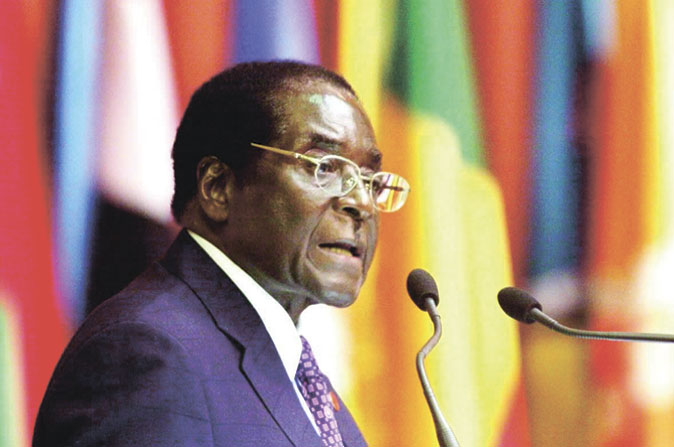Diplomacy / Zimbabwe
Respected in Africa regardless of Western hostility
Zimbabwe is a key regional player in Africa and a friendly nation to China

Zimbabwe President Robert Mugabe has been appointed by African pairs to be chairman of SADC in 2014 and the African Union in 2015.
Away from the western-run institutions of the world, Zimbabwe’s international status has had a remarkably different bout of health. Since the imposition of Western sanctions in 2002, the country has created strong and flourishing bilateral relationships with many other countries, carving out a successful regional leadership role.
The European Union (EU) was at the forefront of the implementation of sanctions against Zimbabwe. The EU prohibited the government and Zanu-PF-owned companies from making banking transactions with member states. An arms embargo was enforced, assets were frozen and hundreds of people linked to the political leadership were banned from travelling to the EU. The American government followed suit a year later and extended many of these rulings, as well as targeting state-run companies.
The High Commissioner for Human Rights, Navi Pillay last year declared, while visiting Zimbabwe, that such sanctions “inevitably have had a negative impact on the economy.” Independent estimates suggest that sanctions have lost the country a total of $42 billion in revenue over the past 13 years. Many state-owned enterprises were badly hit. The Industrial Development Corporation of Zimbabwe lost over $20 million to the United States Treasury Department, as did the Minerals Marketing Corporation who lost over $30 million.
While Zimbabwe’s relationship with the West has been strained both politically and economically, the country as a consequence has created deep and fruitful links both regionally and internationally. For the last year, Zimbabwe has been the head of both the Southern African Development Community, and still remains the head of the African Union, two appointments that pleased many across a continent that disagree with the West’s behavior toward Zimbabwe. For example, two ex-presidents of African countries, Kenneth Kaunda, President of Zambia from 1964 until 1991, and Thabo Mbeki, President of South Africa from 1999 to 2008 have both spoken critically of the sanctions regime.
Western sanctions lasting over a decade have encouraged Zimbabwe to seek international credit and finance from alternative sources, most notably China. Mugabe’s Look Easy Policy, implemented in 2003 – a direct reaction to the change in Zimbabwe’s international fortunes – was designed to attract large investments into the country’s aging infrastructure. Ever since, Zimbabwe has benefited from commercial, concessionary and low interest loans from China.
While many begin to question the effects the sanctions regime has had on destabilizing the current government, and what, if any, successful outcome they have achieved, Zimbabwe is focusing on rehabilitating aging infrastructure as the country continues to utilize its international position outside the west’s financial institutions.
